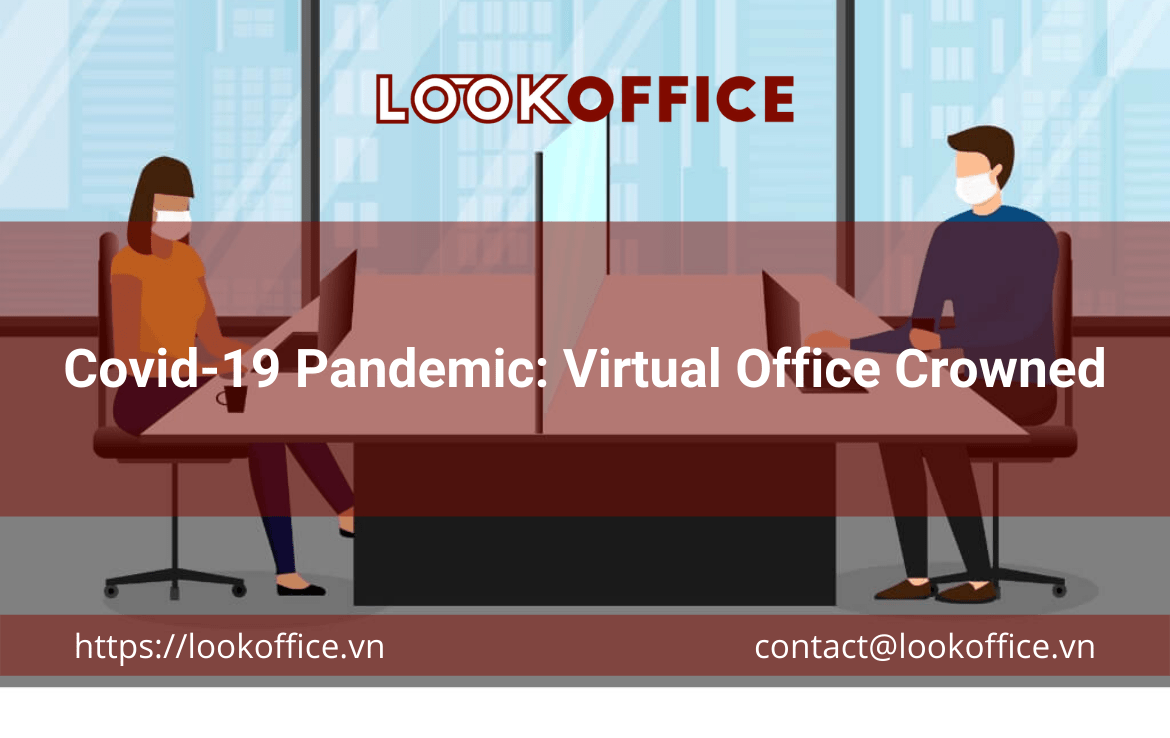
How should the concepts of flexible office, co-working, or virtual office be understood and what is the flexibility that the office market is aiming for during the covid-19 pandemic?
SUITABLE SHARE OFFICE FOR START-UP IN COVID-19 PANDEMIC

Savills predicts that by 2024, millennials (those born between 1981 and 1996) will make up 75% of the workforce, and options for working from home, office design, and add-ons for the office are attractive concepts.
The Real Estate Market Overview report in the first quarter of 2021 shows that the Hanoi office sector has positive activities, the office supply in the first quarter of 2021 is over 2 million m2, up 3% QoQ and 10% YoY with occupancy remaining stable at 89%.
Notably, this sector also recorded changes to keep up with the trend of office use in the world, including changing demand for flexible offices, shared offices (co-working and co-working offices), and virtual offices.
Different from traditional office designs with fixed seating areas and limited co-working areas, many companies now require flexibility in office design to create opportunities for collaboration and communication between personnel or departments.
Business tenants want to work in a comfortable environment, providing all essential amenities with the most basic elements integrated into the same space.
Another notable point of the office market during and after the Covid-19 pandemic is the interest in co-working offices.
Ms. Hoang Nguyet Minh, Director of Commercial Leasing, Savills Hanoi, said that co-working is a trend suitable for young people who prefer to work outside, in places where the working environment is more flexible.
The reason this model is attractive is that co-working allows them to choose to work independently in their own space or chat, exchange, and share ideas with like-minded people.
However, co-working also has certain limitations compared to the traditional office model.
TRADITIONAL OFFICE FOR BIG BUSINESS DURING COVID-19 PANDEMIC

The co-working segment is especially suitable for start-ups or freelancers. However, businesses with more than 30 employees will pay more attention to creating corporate culture, instead of focusing on flexibility in seating.
Co-woking is favorable for flexibility, but cannot support building a company culture, so this model is not suitable for companies with long-term plans.
Currently, Grade B and C offices are reaching the highest occupancy rates in the market, partly because many businesses need a large office model, ranging from 1,000 to 2,000 square meters of floor space.
They often choose buildings with a reasonable and affordable rental budget so that they can have the cost of re-investing in the interior, changing the working model to suit the company culture.
The co-working developers themselves also realize that with the current model, they will It is difficult to support businesses to build culture, so they are also considering an adjustment plan in the direction of serving large enterprises, businesses consider the issue of increasing or decreasing the rented area. This is also one of the issues that businesses developing co-working spaces are having to balance.
On the other hand, the Covid-19 pandemic has made the emergence of a niche segment of the office market that is virtual offices.
Virtual office providers help tenants register an official address in their building with services such as receiving mail, providing meeting rooms when needed.
Businesses using the service just need to register an office address and work anywhere. However, Savills currently does not encourage the virtual office model because of unclear legal grounds.
Currently, there is no clear legal basis for setting up virtual offices while businesses do not have physical seats or specific lease contracts but only need an address to register their business, register their name business domain.
Businesses using this model will often rent by the month or pay rent according to the number of days sitting at the office. Therefore, it is the responsibility of companies that provide virtual office services to receive the reports of the rental companies and keep in touch.
With certain flexibility, this model will only be suitable for start-ups or newcomers to the Vietnamese market.
It can be said that thanks to their flexibility, current alternative office models are suitable for certain customers such as freelancers, start-ups, small or new businesses set foot to learn the Vietnamese market.
For medium and large enterprises, traditional offices are still the preferred choice.
For Foreign companies that want to start or expand businesses and look for an office in Vietnam:
CONTACT US
We offer a free consultation to support you to find a suitable Office For lease In Ho Chi Minh:
Phone: (+84) 398 716 459 – Available via Whatsapp/ Viber/ Zalo
Email: contact@lookoffice.vn
Website: https://lookoffice.vn/contact
Facebook: https://www.facebook.com/lookoffice.vn/
Office For Lease at LOOKOFFICE
source https://lookoffice.vn/covid-19-pandemic-virtual-office-crowned
Read Vietnam Economy Weekly News
No comments:
Post a Comment